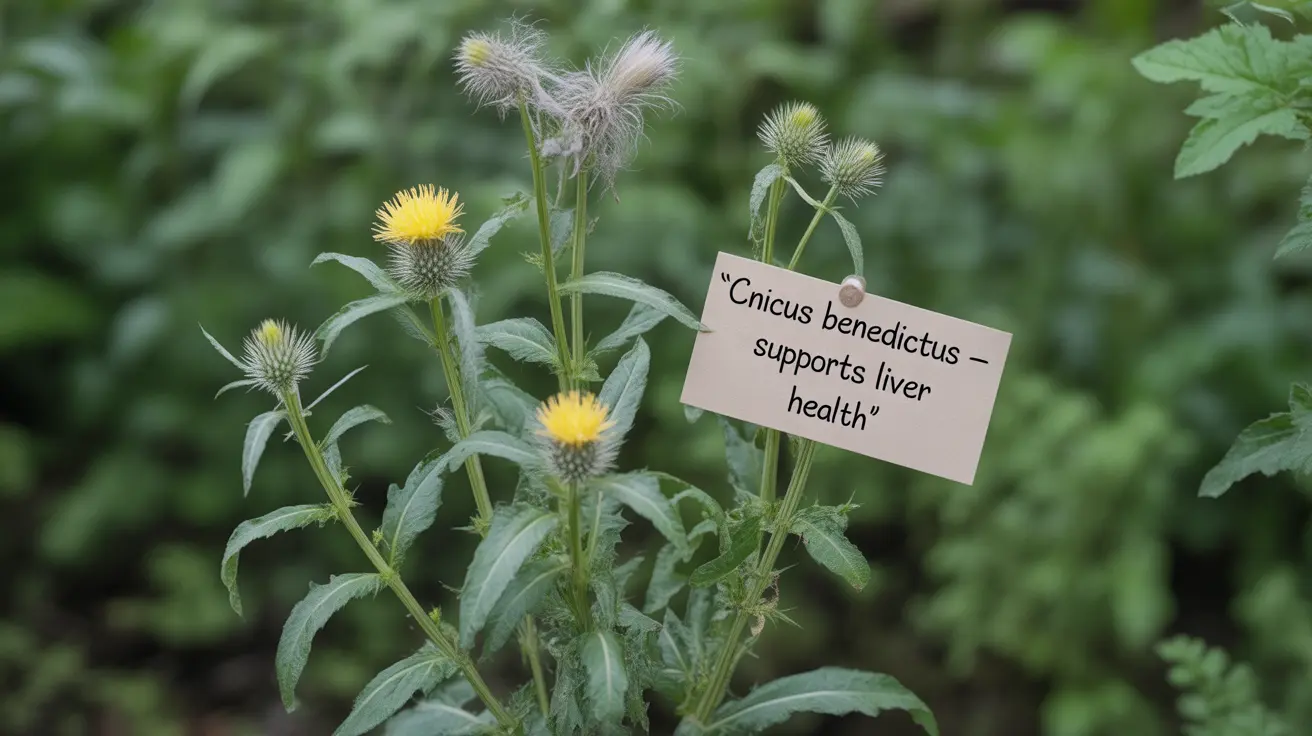Blessed thistle (Cnicus benedictus) is a medicinal herb with a rich history dating back to medieval Europe, where monasteries cultivated it for its various therapeutic properties. Today, this ancient herb continues to attract attention for its potential health benefits, particularly in supporting digestive health and lactation in nursing mothers.
As interest in natural remedies grows, understanding the scientific evidence behind blessed thistle's traditional uses becomes increasingly important. This comprehensive guide explores its benefits, safety considerations, and proper usage methods.
Historical Background and Traditional Uses
Traditionally used by herbalists and medical practitioners for centuries, blessed thistle earned its name from its reputation as a cure-all in medieval monasteries. The plant's bitter compounds have long been associated with improving digestive function and supporting overall health.
Key Health Benefits of Blessed Thistle
Digestive Support
Blessed thistle contains bitter compounds that may help stimulate digestive functions. These compounds can increase the production of gastric secretions and saliva, potentially improving digestion and reducing symptoms like bloating and indigestion.
Lactation Support
One of the most well-known applications of blessed thistle is its use as a galactagogue - a substance that may increase milk production in nursing mothers. While traditional use is widespread, it's important to note that scientific studies on this benefit are still limited.
Anti-inflammatory Properties
Research suggests that blessed thistle contains compounds with potential anti-inflammatory and antioxidant properties. These properties may help support the body's natural immune response and protect against cellular damage.
Safety and Dosage Guidelines
Recommended Forms and Preparations
Blessed thistle is available in several forms:
- Dried herb for tea
- Tinctures
- Capsules and tablets
- Liquid extracts
Proper Dosage
While dosage can vary based on the form and intended use, typical recommendations include:
- Tea: 1-2 grams of dried herb steeped in hot water, up to three times daily
- Capsules: 1-2 grams taken up to three times daily
- Tincture: 2-3 mL up to three times daily
Important Safety Considerations
Before using blessed thistle, consider these important safety factors:
- Not recommended during pregnancy
- Should be avoided by individuals with bleeding disorders
- May interact with certain medications
- Should not be used by people with stomach ulcers
Frequently Asked Questions
What are the main health benefits of blessed thistle and how does it help with digestion?
Blessed thistle primarily helps digestion through its bitter compounds, which stimulate the production of digestive juices and saliva. These actions can help improve overall digestion, reduce bloating, and alleviate mild digestive discomfort.
Can blessed thistle be used safely to increase breast milk production in breastfeeding mothers?
While blessed thistle has been traditionally used as a galactagogue, nursing mothers should consult with their healthcare provider before use. Current evidence supporting its effectiveness is largely based on traditional use rather than extensive clinical studies.
What evidence is there that blessed thistle has antiviral or anti-inflammatory properties?
Laboratory studies have shown that blessed thistle contains compounds with anti-inflammatory and antioxidant properties. However, more clinical research is needed to fully understand these effects in humans.
Are there any side effects or risks associated with taking blessed thistle supplements?
Common side effects may include stomach irritation, nausea, and allergic reactions in sensitive individuals. People with bleeding disorders, stomach ulcers, or those taking blood-thinning medications should avoid blessed thistle. Pregnant women should not use this herb.
How is blessed thistle typically prepared and what is the recommended dosage for its medicinal uses?
Blessed thistle can be prepared as a tea, taken as capsules, or used as a tincture. For tea, use 1-2 grams of dried herb per cup of hot water. Capsule doses typically range from 1-2 grams taken up to three times daily. Always follow product-specific instructions and consult with a healthcare provider for personalized dosage recommendations.




